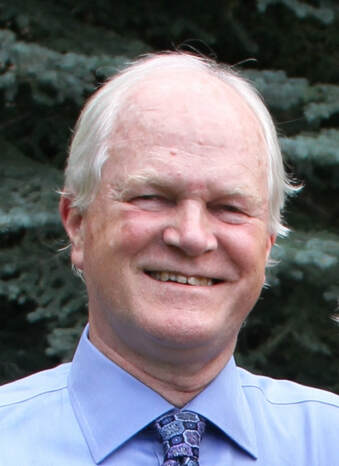Bruce A. menge
Distinguished professor
wayne and gladys valley endowed professor of marine biology
|
Research Interests
|
Current Research Projects
Our group is the lead institution in the Partnership for Interdisciplinary Studies of Coastal Oceans (PISCO), a Long-Term, Large-Scale Ecological Consortium. Other consortium members include the Universities of California at Santa Barbara and Santa Cruz, and Stanford University's Hopkins Marine Station. The research goals of PISCO are to understand the impacts of climate change on large marine ecosystems, to further the theory and application of marine reserves, and to help inform the sustainable management of marine resources (see http://piscoweb.org). PISCO activities are or have been supported by private foundations (the David and Lucile Packard Foundation, the Gordon and Betty Moore Foundation, the Wayne and Gladys Foundation, the Andrew W. Mellon Foundation) and federal agencies (National Science Foundation, Sea Grant).
At OSU, our research is focused on the structure and dynamics of meta-ecosystems (ecosystems linked by flows of propagules, nutrients, and biomass) located in coastal upwelling systems and their responses to climate change. Our approach involves investigation of community pattern and dynamics at the local scale, and "scaling-up" using the comparative-experimental approach to regional and geographic scales. At multiple sites along the variable northern California Current, we link field experiments testing interaction strengths to oceanic drivers by quantifying ecological subsidies (phytoplankton and particulates, nutrients, recruits) and physico-chemical conditions (temperature, photosynthetically active radiation, upwelling). To evaluate responses to climate change, we combine targeted field and lab experiments on species interactions and time series datasets on recruitment, chlorophyll, nutrients, temperature and climatic indices to understand past and forecast future changes likely to occur in coastal ecosystems.
Time series datasets, some of which were begun as early as 1989, document physical and biological changes in inner shelf communities. We have learned that invertebrate recruitment and phytoplankton concentration track the North Pacific Gyre Oscillation, a 10-15 year climatic cycle in the Pacific Ocean basin, and that mussel growth is influenced by both El Nino-Southern Oscillation and Pacific Decadal Oscillations. We are currently examining the influence of these climatic variations on community structure and dynamics.
Oceanographic research in the inner shelf provides environmental context for ecological changes in intertidal and shallow benthic habitats. This work uses a combination of moorings and ship-based surveys. Besides obtaining an understanding of the basic oceanic-to-coastal and coastal-to-oceanic linkages, we have a particular focus on two recent climate-induced changes – hypoxia, the annual appearance of oxygen-depleted waters in the inner shelf that smothers and kills invertebrates and fish, and ocean acidification, the intrusion by seasonal upwelling of low pH waters that challenge the ability of marine organisms to form shells or skeletons.
Our studies take place primarily in two ecosystems, one in the northern hemisphere (US west coast, Oregon, California and Washington) and one in the southern hemisphere (New Zealand’s south island). Past and current projects have also taken place in Panama, New England and the Galapagos Archipelago and involved collaborations with scientists in Chile and South Africa.
Features common to all research conducted by our laboratory include studies of recruitment and larval transport, population performance of critical species, and species interactions in rocky intertidal regions; studies of physical and biological processes in the waters of the inner shelf (shore to about 10 km offshore, 0 to 70 meters water depth); and surveys of community structure. In addition to close ties with PISCO participants, our research includes important collaborations with colleagues in OSU's College of Oceanic and Atmospheric Sciences, Bodega Marine Laboratory at the University of California at Davis, California State University at Sonoma, and Northeastern University (see Recent Representative Publications for examples of publications leading to, and stemming from these activities).
Our group also founded ICORUMBA, the International Consortium for Research in Upwelling Marine Benthic Areas, which included as collaborators groups at UCSB, Universidad Catolica in Santiago, Chile, University of Cape Town in Cape Town, South Africa, and the University of Canterbury, Christchurch, New Zealand. The goals and approaches of the members of this consortium were similar to those of PISCO. We aimed to determine the roles of larval and particulate transport in structuring benthic communities located within and between coastal areas influenced by upwelling and non-upwelling conditions. Funding for this collaboration has ended, but we continue to collaborate with several of the PIs at these institutions.
In addition to these overarching research programs, I have a long-standing and continuing interest in key conceptual issues in community ecology, including keystone species, indirect effects, interaction strength and interaction webs, and models of community regulation. Another major current focus involves testing the mechanistic basis of responses of invertebrates to environmental stresses (temperature, pH, hypoxia) using molecular-genetic, physiological and genomics approaches. This work is also collaborative, and has involved colleagues such as Gretchen Hofmann of University of California, Santa Barbara, Sean Place at CSU Sonoma, and Brian Helmuth at Northeastern University.
